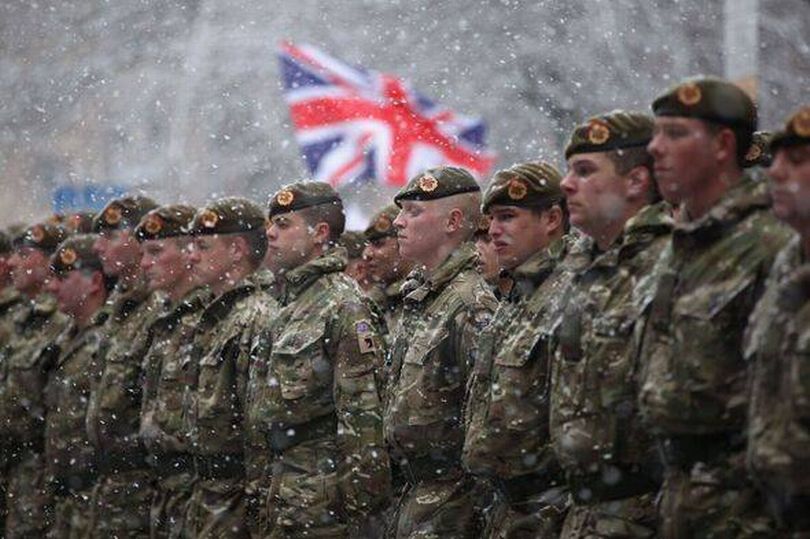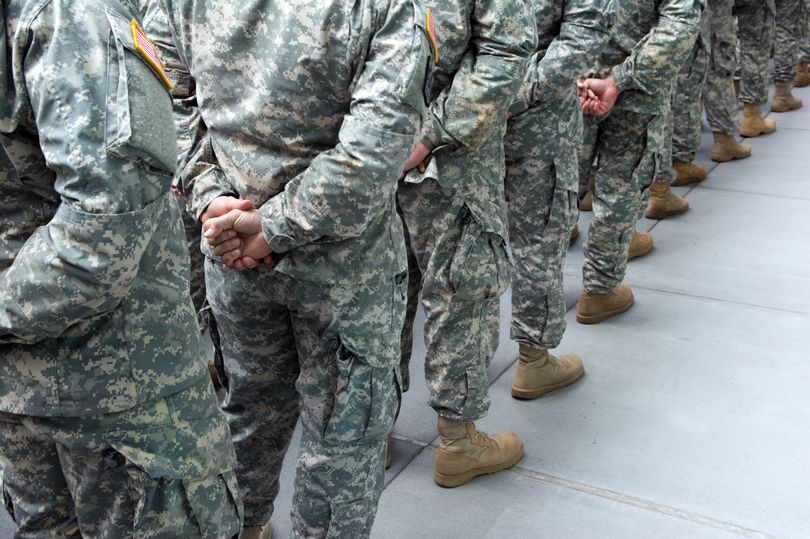With global tensions on the rise, there’s a growing concern about the potential for World War 3 in the coming decade.
The ongoing Israel-Palestine conflict, recent
escalations in the Middle East following US strikes
on Iran, and Putin’s unwavering stance on Ukraine have all contributed to this unease.
In light of these developments, the UK government has advised the public to
brace themselves for possible warfare on British soil,
calling for increased preparedness across society.
- Households urged to shut windows and curtains if they face one direction on Sunday
- ‘Legendary’ crisps set to return 20 years after they were discontinued
Labour leader Sir Keir Starmer has previously committed to deploying British troops to Ukraine if necessary to counteract any advances.
Should global tensions continue to escalate and lead to war, it’s worth considering how the UK might respond, including
the possibility of reinstating conscription.
Reflecting on history, conscription was introduced for men aged 20 to 22 in 1939, just six months before World War 2 erupted, reports
the Express
.
According to the UK Parliament website: “During the spring of 1939 the deteriorating international situation forced the British government under Neville Chamberlain to consider preparations for a possible war against Nazi Germany.”
“Plans for limited conscription applying to single men aged between 20 and 22 were given parliamentary approval in the Military Training Act in May 1939. This required men to undertake six months’ military training, and some 240,000 registered for service.”
However, when war was declared, the age range was immediately expanded to
include any man aged 18 to 41.

The article continues: “On the day Britain declared war on Germany, September 3, 1939, Parliament immediately passed a more wide-reaching measure. The National Service (Armed Forces) Act imposed conscription on all males aged between 18 and 41 who had to register for service.”
The only men who weren’t called up were
those who were medically unfit
or who worked in vital industries like baking, farming, and medicine, which were crucial to the war effort.
It further adds: “Those medically unfit were exempted, as were others in key industries and jobs such as baking, farming, medicine, and engineering.”
By the end of 1941, women and ‘all childless widows’ between the ages of 20 and 30 were called up, while men aged up to 51 were called up for military service. Even those aged 52 to 60 were required to take part in ‘some form of military service’.
Last year, the then Defence Secretary Grant Shapps remarked that we are “moving from a post-war to a pre-war world”, while General Sir Patrick Sanders, Britain’s top army officer, highlighted the need for an increased military and better preparedness for conflict.
When surveyed by YouGov at the end of January, 38% of under-40s admitted they would
decline to serve in the armed forces
if a global conflict were to arise, with 30% stating they wouldn’t enlist even if the UK faced ‘imminent invasion’.
Interestingly, the poll also revealed that a significant majority – 72% – support the idea of conscripting women alongside men.
The course of action for those who refuse to serve in a hypothetical third world war remains uncertain, but history tells us that during WWII,
British ‘conscientious objectors’ underwent trials,
with some ending up working in mandatory roles away from the frontlines.







